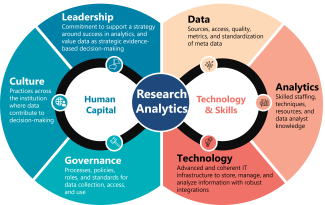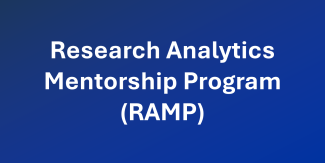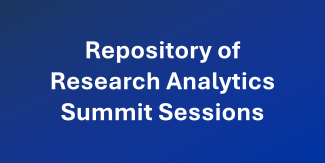The Research Evaluation and Analytics Capacity Hub (REACH) is a global forum for the advancement of research analytics, the use of data-informed decision-making, artificial intelligence (AI), and responsible research assessment and evaluation practices. REACH leverages expertise from our network of professionals and engages institutions interested in building capacity and the research enterprise. Network members come from a variety of educational and research institutions and professional fields that include but are not limited to researchers, research administrators, research analysts, and librarians.
Welcome to the Research Evaluation and Analytics Capacity Hub (REACH)
Meet us in Newport, RI for the 2026 Research Analytics Summit!
Join the growing Research Analytics community at the 2026 Research Analytics Summit, held in historic Newport, Rhode Island from April 19–21. Connect with research managers, administrators, librarians, and data professionals to discuss data, analytics, technology, data governance, culture, and leadership. Session topics will range from novice to advanced, so there will be something for everyone, regardless of your experience with research analytics.

Cory Favino
What we offer
Learn more and get connected
Join Our Email List
Sign up to receive information about REACH activities and participate in community discussions about new and emerging issues. The listserv is hosted and managed by our colleagues at the University of Missouri. Post to the listserv by emailing: ResearchDataAnalytics-L@lists.UMSystem.edu.
What is Research Analytics?
Quoting Katherine Robershaw and Baron Wolf's work, Research Analytics: A Systematic Literature Review, “Research analytics is the science of analyzing data to make data-informed decisions for strategic planning, research and development and business processes related to research administration functions.” The purpose of research analytics is to identify areas that could be enhanced, troubleshoot current issues discovered by data and resolve them with evidence-based solutions. Information derived from research analytics can strengthen research performance, build capacity, and strengthen knowledge and discover within higher education institutions.
The literature review's resulting conceptual framework of Research Analytics Capabilities is shown to the right and outlines six (6) dimensions that may be significantly associated with the development and optimization of a research analytics program.

Project Support

This project is supported through grant funding from the U.S. National Science Foundation (grant number: 2444978). A project of NSF GRANTED. GRANTED focuses on addressing systemic barriers within the nation's research enterprise by improving research support and service capacity. GRANTED is a whole-of-NSF approach that will transform NSF and the science and engineering community to develop the collective knowledge, skills, talents and desire to serve within the nation’s science and engineering enterprise.

This project is led by Dr. Baron G. Wolf, Director of Research Analytics at the University of Kentucky. The University of Kentucky has been a global leader in the field of research analytics. Dr. Wolf has been supported through several research grants from the U.S. National Science Foundation, Institute of Museum and Library Services, and the National Institutes of Health.

West Arete’s two-year partnership reflects a shared commitment to advancing the field of research analytics and evaluation. Through this two-year collaboration, REACH and West Arete are co-developing innovative digital infrastructure to support network activities, enhance transparency in research evaluation methodologies, and promote the ethical use of artificial intelligence in research administration.
West Arete's partnership with REACH is helping to build the tools and platforms that will strengthen national and international capacity for research analytics, ultimately contributing to a more connected and insightful research ecosystem.


